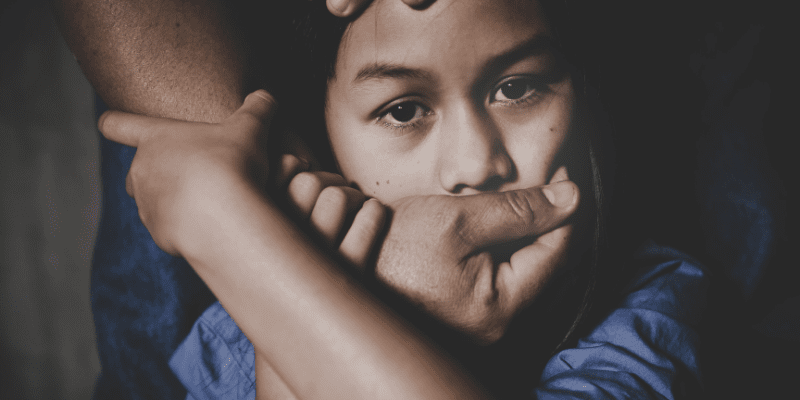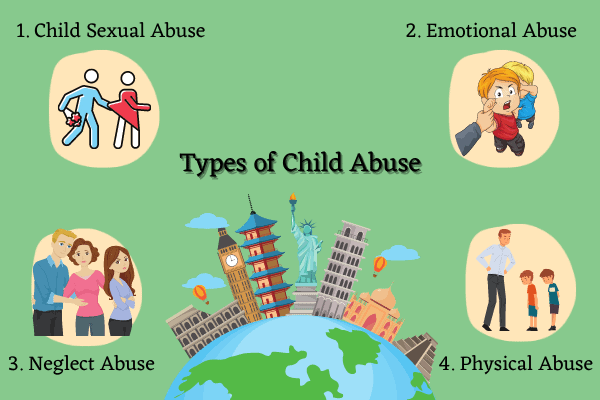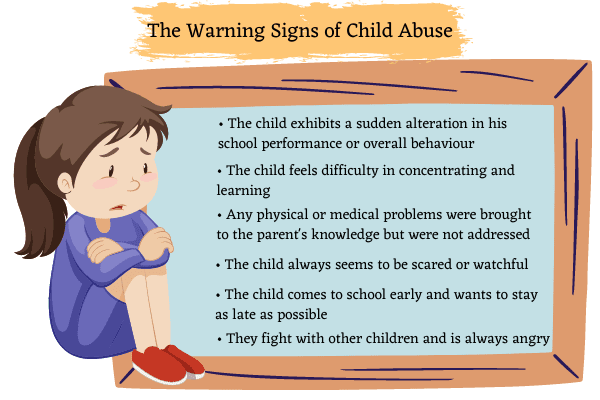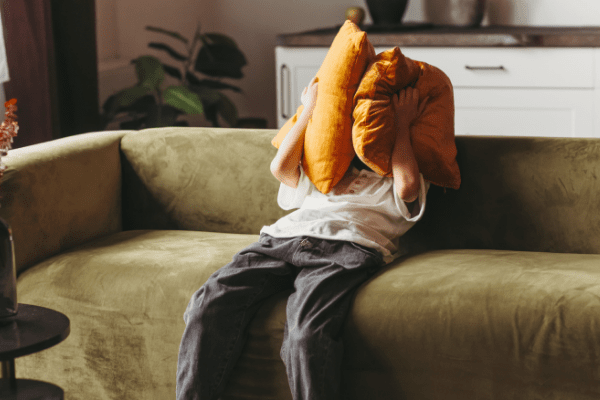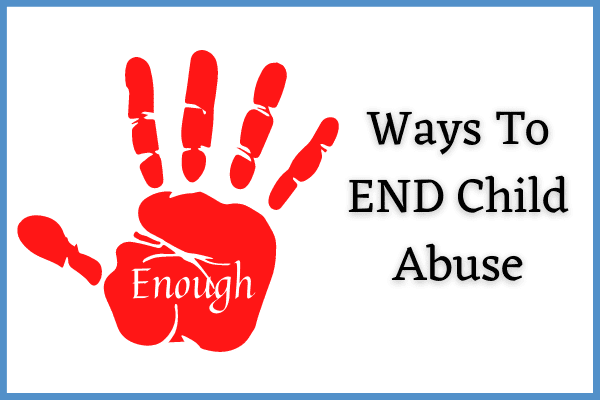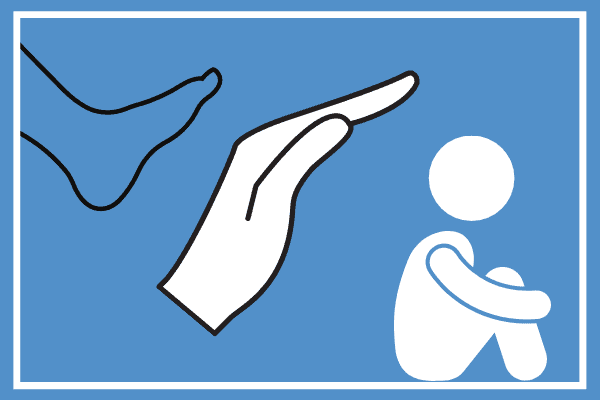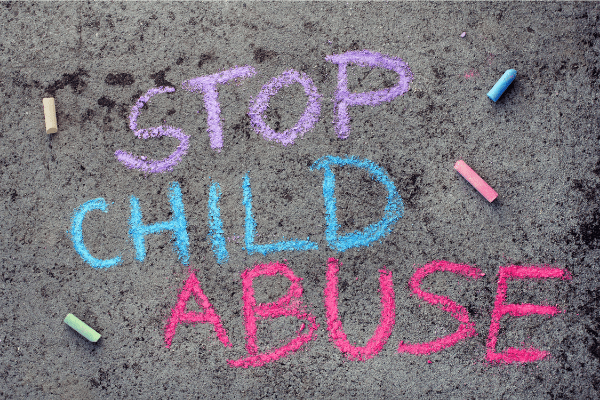“Childhood should be carefree, playing in the sun, rather than living a nightmare in the darkness of the soul.” Dave Pelzer
What is Child Abuse?
One of the most dreadful realities of life, child abuse is not a form of physical violence only. Instead, it can be anything ranging from mistreating a child, threatening, being violent, sexual or emotional abuse, or exploiting the child in any way.
In short, any sexual, physical, and emotional behaviour that could harm a child physically or mentally is included in child abuse. In addition, neglecting your child and not paying proper attention to his basic needs is also a form of child abuse.
Child abuse is not something that can be ignored. On the contrary, it has a long-lasting and severe impact on children’s life.
What are the Different Types of Child Abuse?
Treating someone with violence and cruelty is termed abusive behaviour. And such behaviour with children is Child maltreatment. There are four types of Child Abuse.
1. Child Sexual Abuse
Any contact between an adult and a child, such as sexual involvement or a bad touch, is Child Sexual abuse. It also includes watching a child or spying on a child.
2. Emotional Abuse
Emotional abuse includes yelling, ignoring, bullying, shaming, isolating, and criticizing a child.
3. Neglect Abuse
When adults or child’s parents neglect the basic needs of a child, it is also a form of Child abuse. A child’s basic needs include food, medical attention, education, shelter, hygiene, safety, and supervision.
4. Physical Abuse
Using any physical force against a child, such as beating a child that can cause pain or injury, is a type of physical abuse.
How to Recognize Signs of Child Abuse?
Certain signs might be a signal of Child abuse. Recognizing these signs and symptoms and helping the child come out of this toxicity is our basic duty as human beings.
- The child feels difficulty in concentrating and learning.
- The child exhibits a sudden alteration in his school performance or overall behaviour.
- Any physical or medical problems were brought to the parent’s knowledge but were not addressed.
- The child always seems to be scared or watchful.
- The child comes to school early and wants to stay as late as possible.
- They fight with other children and is always angry.
Who is at the Risk of Child Abuse?
Various risk factors are directly related to child abuse. These risk factors involve the behaviour and attitude of both children and families.
Often, caretakers or parents cause abusive behaviour with the child because of certain mental illnesses, trauma, or stress. Sometimes, abuse occurs when the parents are extremely drug addicts. Furthermore, teenage or very young parents who have no idea how to take care of a child can abuse or neglect their children.
Many factors related to the child can also be the reason behind child abuse. For example, a child’s physical and mental health, social and emotional development, nature, age, etc., are a few aspects that can elevate their susceptibility to negligence and abuse. Moreover, the child’s neighbourhood, the occurrence of violence in the surrounding, anxiety, depression, social isolation, and last but not least, poverty, the factors alone or in combination, are the common risk factors behind child abuse.
Why Does Child Abuse Matter?
Awareness regarding child abuse matters a lot. It is quite important to make people aware that child abuse has an extremely negative impact on children for their lifetimes. It destroys their personality. According to research, child abuse is directly related to harmful effects on health, including mental health in children and families. The most important thing is that child abuse may have broad implications on communities.
Most of the time, the impact of child maltreatment is so long-lasting that even if the abuse happened a long time ago, it affects the individual for the whole life. Even when the child grows up and thinks about what had happened to him in childhood, it scares him. This eventually destroys an individual’s personality and leading a normal life becomes quite difficult.
Therefore, you must know about child abuse, its types, and its impacts. If you feel like any child abuse is being carried out near you in your surroundings, it’s your responsibility to report it immediately to the Child Bureau. Also, you can call Samaritans of Singapore (SOS) – 18002214444 (24 hours suicide crisis hotline) Email Befriending: [email protected], National Anti-Violence Helpline – 1800 777 0000 (24-hour), and Ministry of Social and Family Development’s Child Protective Service 1800-777 0000 (Operating Hours: Monday to Friday, 8.30am – 5.30pm)
Why Does Child Abuse Affect Mental Health?
Be it during infancy or early stages of childhood, maltreatment or child abuse has an extremely negative effect on the early development of the brain.
Abuse is one of the main reasons for developing several conditions exhibiting declined mental health. These conditions include anxiety, depression, various disorders related to mental health, disturbance or lack of sleep, attempting to suicide, substance misuse, drug addiction or addiction to any bad habit, self-harm, and eating disorders.
Furthermore, sometimes the child relives the abuse or has flashbacks of the tragedy all the time, which has an extremely negative impact on the child’s mental health. He might become sad, angry, fearful, and confused.
What are Some Ways to End Child Abuse?
It is very important to prevent and eventually end Child abuse. There are many ways by which you can prevent Child abuse:
1. Report Child abuse.
One of the most important steps you can take is to report child abuse if you witness it. If you see any evidence of abuse, immediately report it to the local police or Child Protective Services Department.
2. Be aware of signs of child abuse.
There are various signs of child abuse and we need to know these signs and symptoms. A few common signs of child abuse are unexplained injuries, fearfulness, depression, unusual behaviour, sadness, etc.
3. Teach children about their rights.
Children should be taught about their basic rights and what steps to take when they feel something or somebody’s behaviour is wrong. They should be confident enough to report their offender.
4. Examine your behaviour.
Apart from physical, child maltreatment can occur with actions and words. So be careful how you treat and talk to your and other children.
5. Volunteer time and efforts.
Give time to your kids. Take an interest in their interests, fulfill their basic needs and tell them how special they are. A child needs nothing other than your attention, love, and time.
Why Doesn’t Society Talk About Child Abuse and its Prevention?
Many times, children are subjected to abuse behind closed doors. The child becomes so scared and fearful that he never discusses it with anyone. Even if parents find out about it, they never report it or raise voices against it.
If we look at child abuse statistics, the culprit behind most sexual abuse cases turns out to be someone very close to the child, such as his father, brother-in-law, brother, grandfather, uncle, etc. But unfortunately, our society prefers not to talk about these issues mostly because of historical ways of discipline. People usually find it all right to punish, ground, spank, slap, and beat the children because that’s what was done with them, and that is what they have learned.
How to Treat a Child Who is Being Abused?
When you find out that a child is being abused, don’t just sit back; you have to save a life!
What can you do in such a situation? First, you have to talk to the child and encourage him to tell what happened. You have to make him understand that the child is not responsible for that abuse. It’s not their fault at all. Comfort the child. The next step is to take the child with you and report the abuse to the crime department. It would help if you made them feel safe. Finally, consult a psychiatrist and seek additional help from the child’s friends and family.
Conclusion
Parents should not ignore Child maltreatment or child abuse at any cost. Children are the future of your country and the world’s most valuable resource. Whatever you teach and show them in their childhood, they grow up to be an exact image of those teachings and behaviour. Besides being physical, child abuse is sexual and emotional torture that affects a child mentally and leaves never-fading scars for a lifetime. The best approach to eliminating this inhumane act is to report as soon as you see or feel it.
Read our blog how EMDR helps treat Sexual Abuse –

